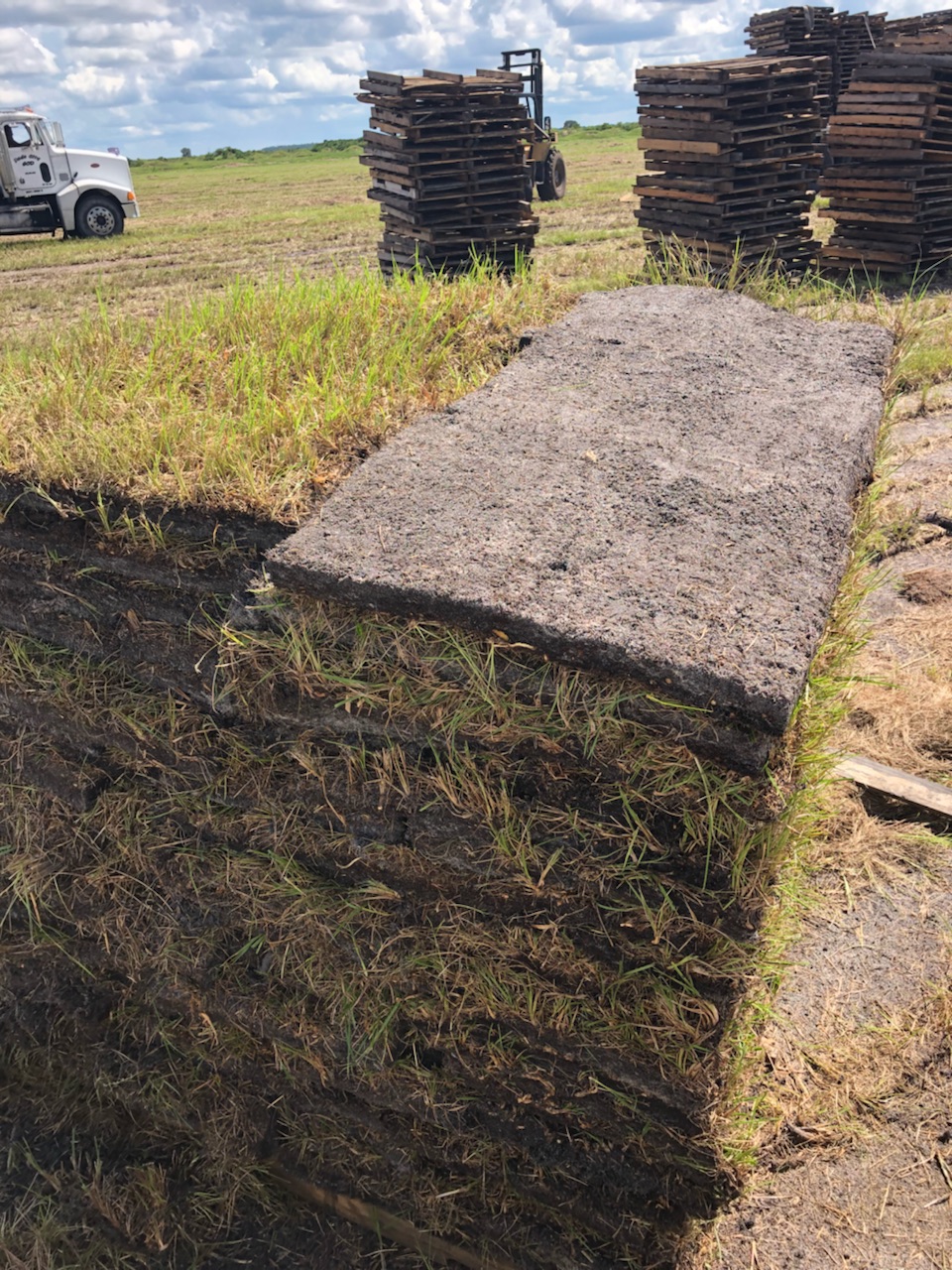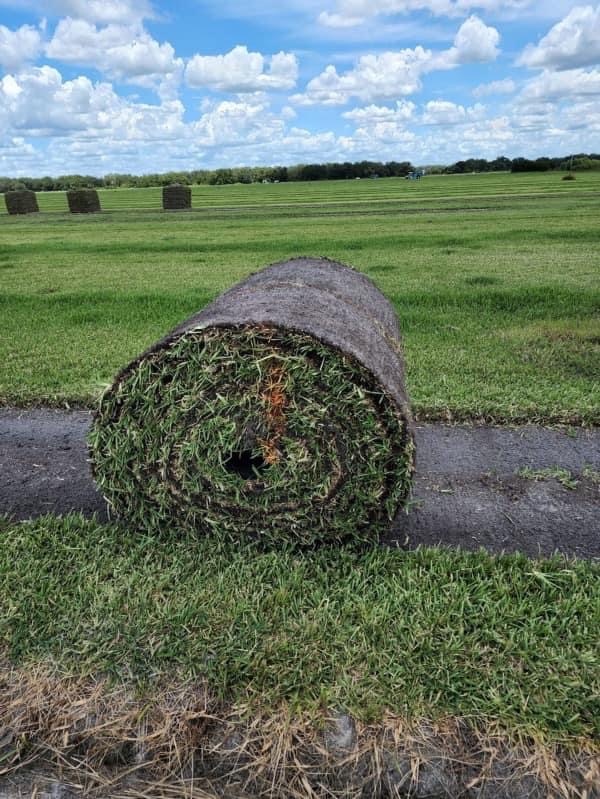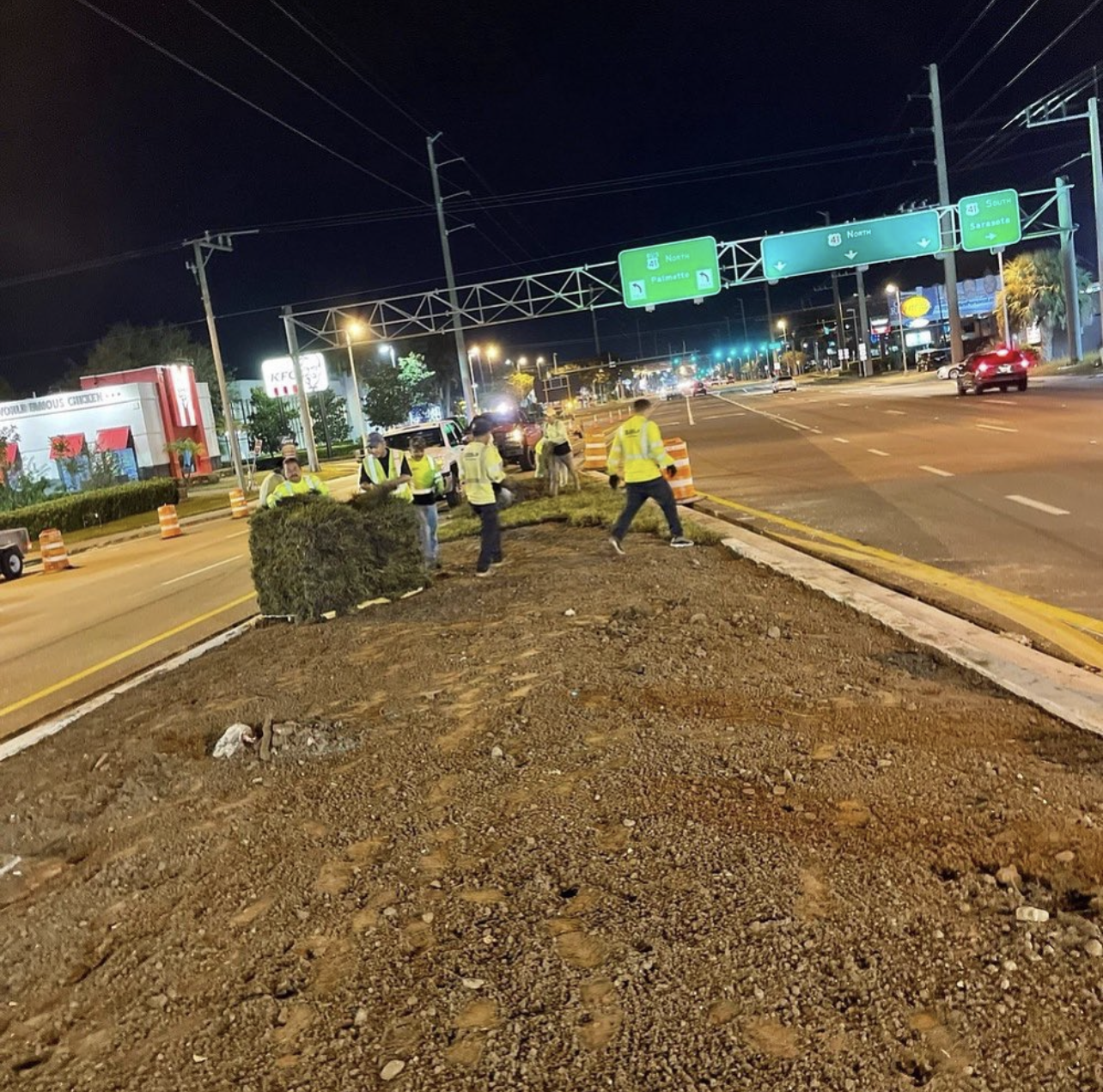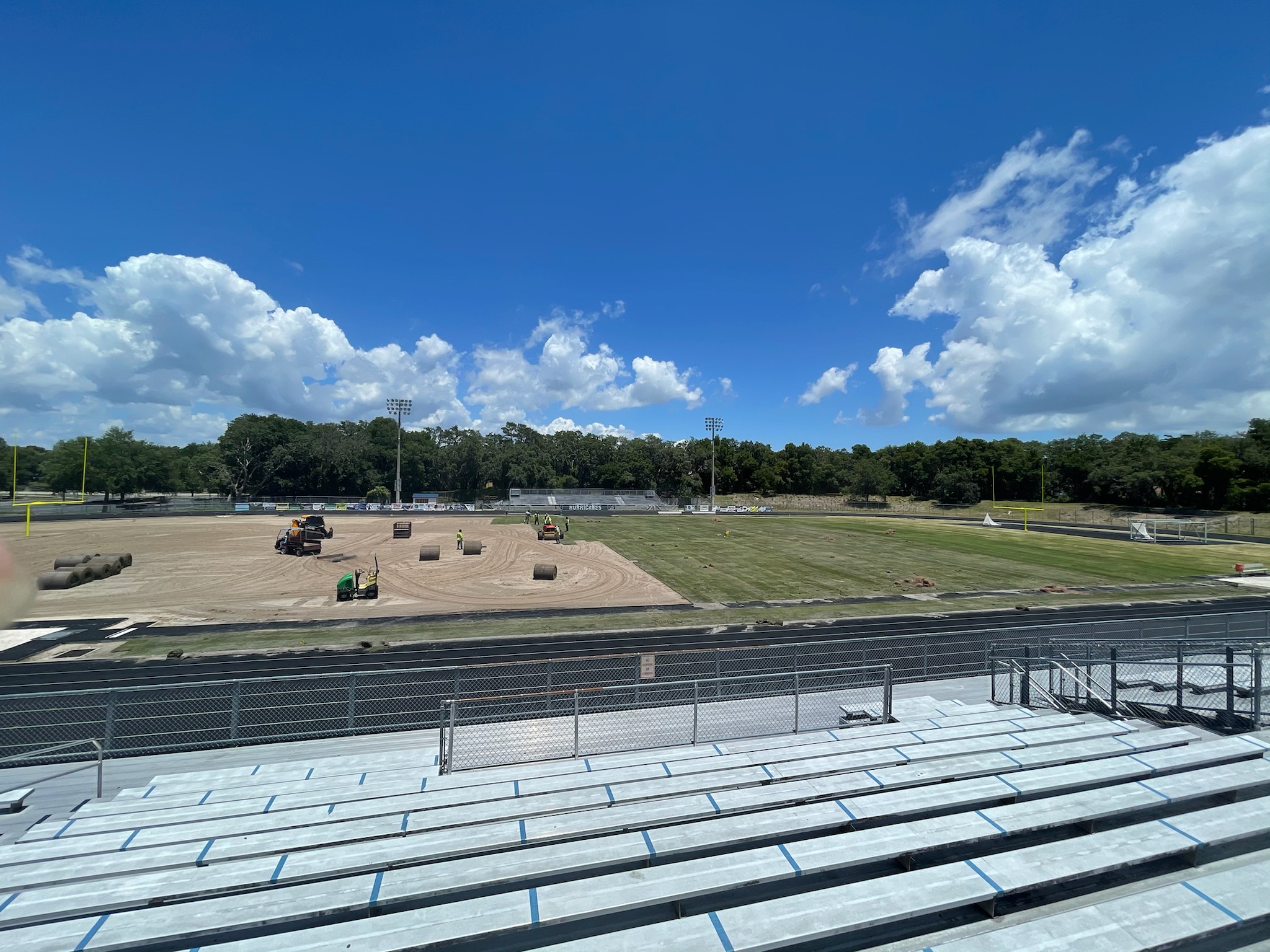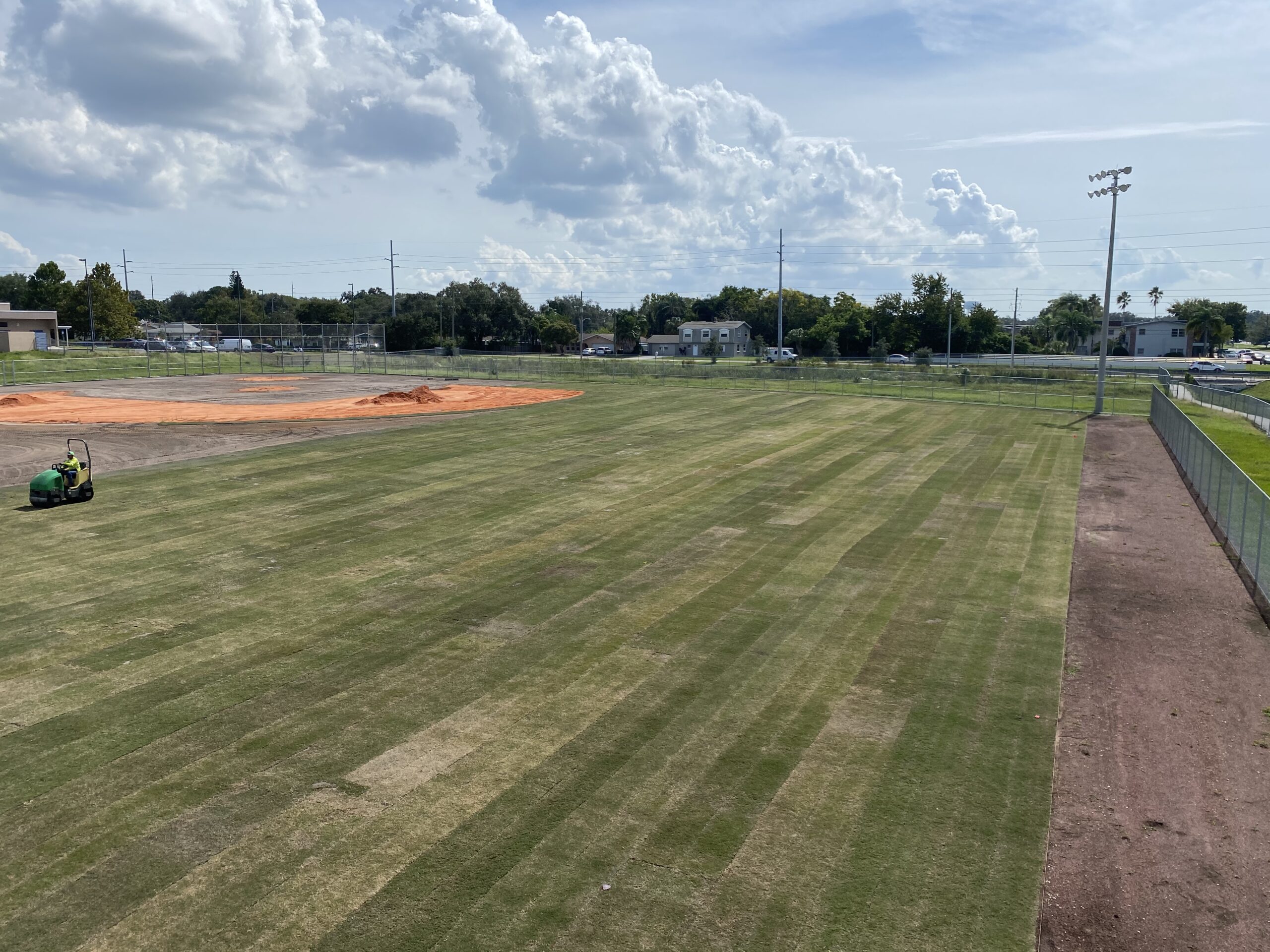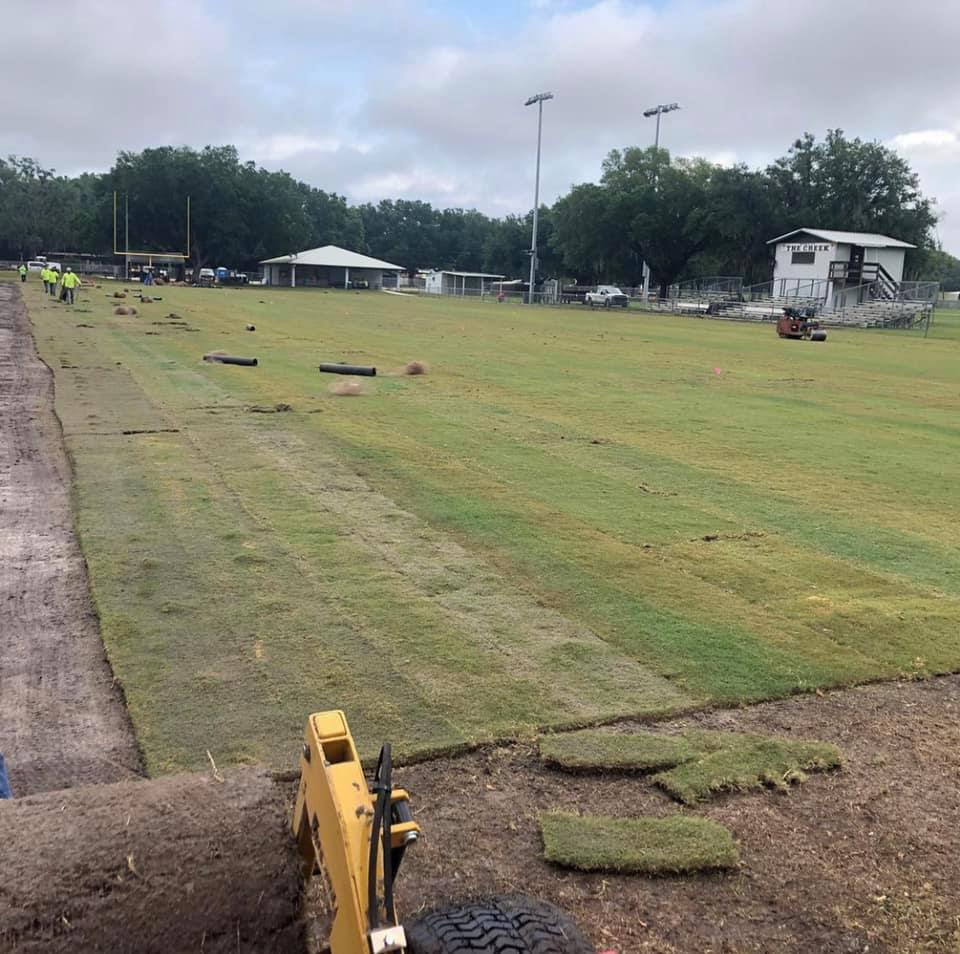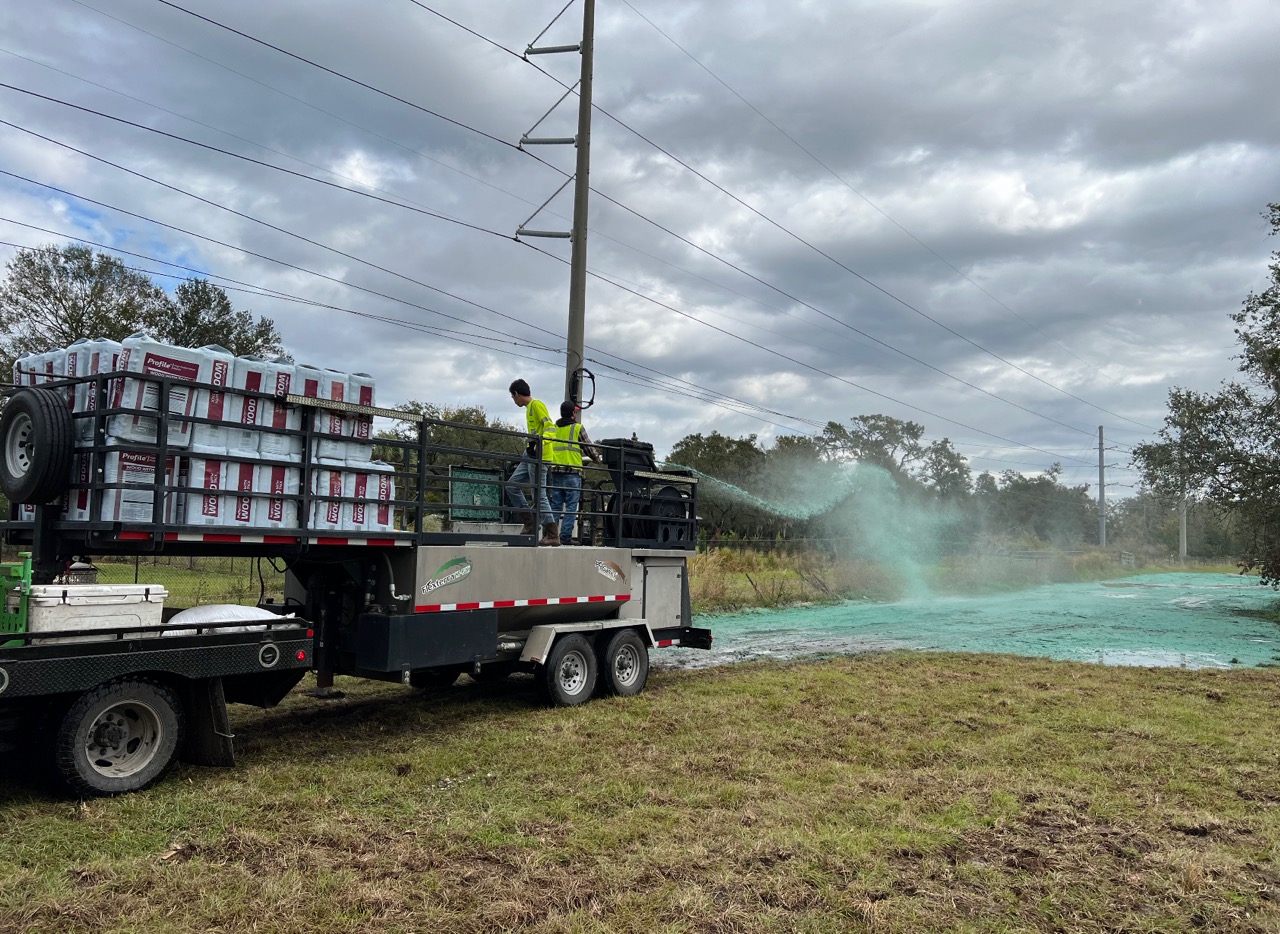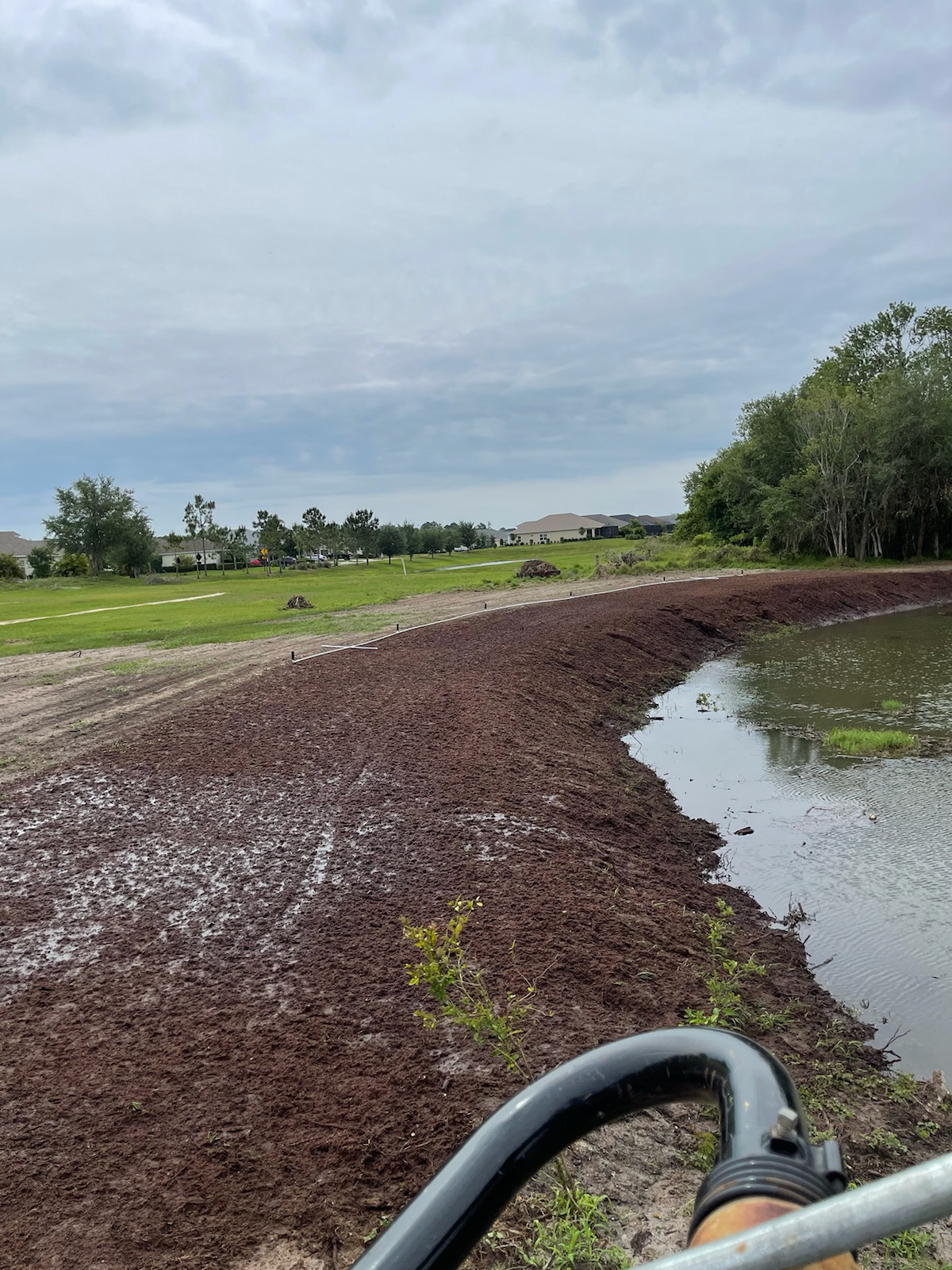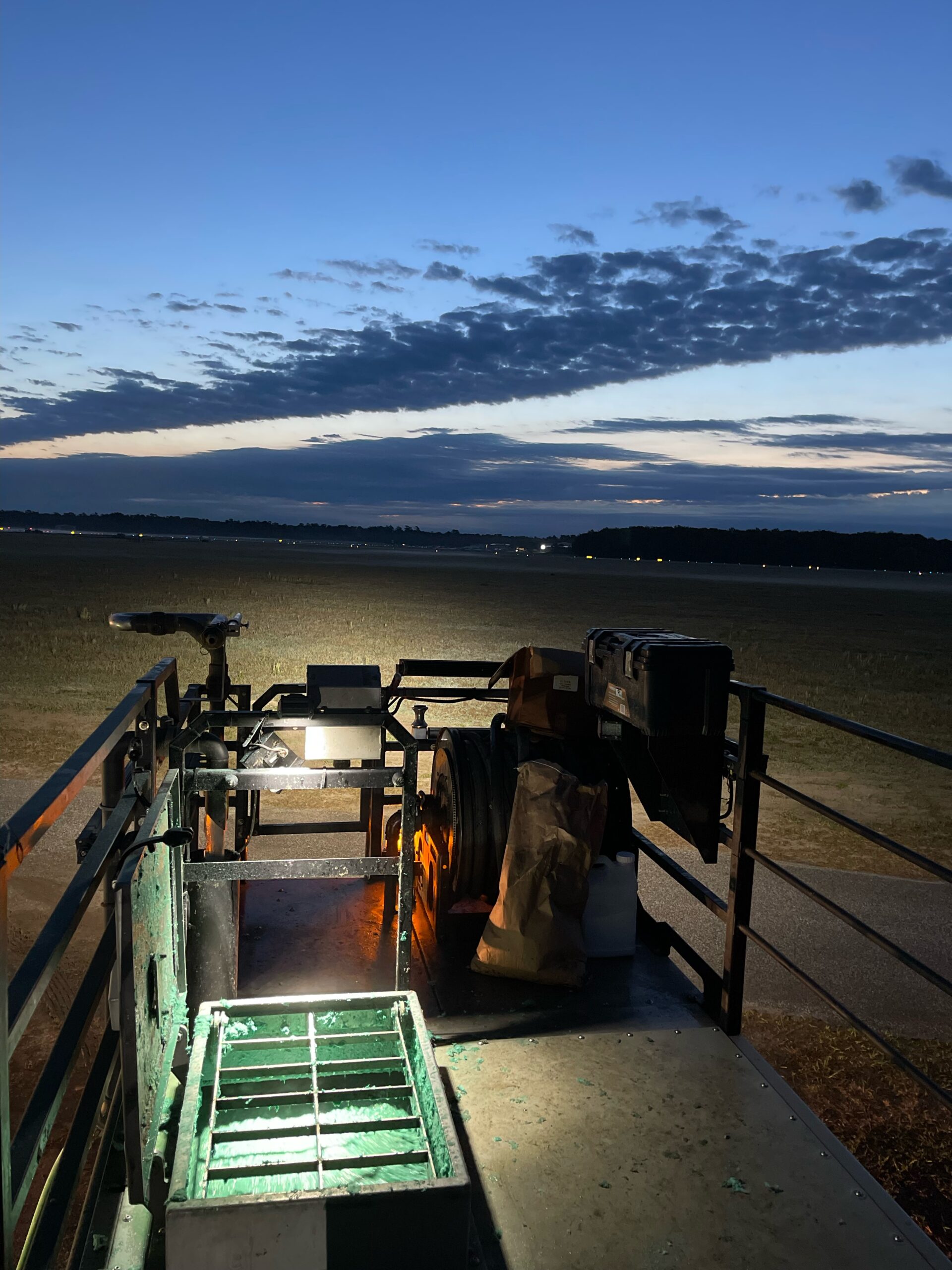Throughout our years in the industry, we have tailored our services to meet the needs of our customers, and are pleased with the options we currently offer including delivery and installation (or just delivery) of various sod varieties in both pallets and rolls, as well as endless hydroseeding mix options.
Services
Bahia is the most cost efficient sod option on the market, and thrives in our hot, humid, Floridian climate. According to research by the University of Florida IFAS Extension, Bahia grass was originally brought to Florida in 1914 to be used as a pasture grass & is now considered Florida native grass.
Given its drought and heat tolerance, ability to thrive in poor soil conditions and withstand full sun, Bahia is one of the most durable turf options on the market. While it can grow in poor, sandy soils, with limited fertilization and irrigation (once established), we do recommend proper maintenance, healthy soil, fertilization and irrigation for optimal results.
Bahia is a perennial, and may go dormant during times of drought and and frost. When dormant, Bahia will look dead and lose its coloring; however, thanks to Bahia’s forgiving nature, it will quickly regain its color and composure once the climate is back to normal – be that water or warm temperatures. Bahia’s durability can be credited to its extensive root system, because healthy roots = healthy lawn!
Given its foundation as a pasture grass, all established Bahia in our area is prone to arriving on-site with weeds, ants, and even a cow patty or two. It may not be the prettiest variety available; but it’s the easiest to take care of, one of the most durable, and cheapest!
As a whole, Bermuda grasses are known to have a grey-green coloring, and short blades. Known for its deep root system and durability, Bermuda makes an excellent choice for high traffic areas such as parks and athletic fields. Bermuda grows horizontally, thrives in temperatures from 75-99 degrees, is not shade tolerant, and thrives in full sun. Within the Bermuda family, there a number of Bermuda varieties. Some of our favorites include:
- TifTuf is by far our favorite Bermuda variety. It offers drought resistance once established, a fine texture, bright green color, soft touch, dense growth, and durability. TifTuf has proven results compared to other varieties in terms of color loss & drought resistance.
- Celebration is a popular Bermuda variety that offers a dark green color as well as some drought tolerance.
- Other varieties of Bermuda include Tifway 419, TifGrand, Bimini, Latitude 36, and Northbridge. While we can sometimes obtain these varieties depending on time of year and quantity needed, we do recommend TifTuf or Celebration in most cases; however, each project is considered on a case by case basis.
Empire Zoysia was cultivated in Brazil to grow in a variety of soil and climate conditions. What makes it perfect for our Floridian climate is its ability to thrive in sandy soil, as well as its tolerance of the heat & drought once established. While it thrives best in harsh tropical climates thanks to its Brazilian heritage, Empire Zoysia is able to tolerate some very limited cold weather. Like most sod varieties, Zoysia will grow best in full sun. It offers a fine blade and blue-green hue, as well as a soft, lush, texture.
The hardiness of Empire Zoysia is due to its deep, thick root system. This system supports its drought tolerance, slow vertical growth, natural chinch bug resistance, disease resistance, and chemical resistance. These factors all work together to provide a low-maintenance lawn. Thanks to its drought tolerance & lower chemical treatment needs, Empire Zoysia is more eco-friendly and meets “green building” standards.
Hydroseeding is a method of planting grass seed using a machine specifically designed to mix the necessary materials & uses a high pressure hose to spray the mixture onto the ground. The seed mixture used varies based on job specifications and needs, but typically involves a combination of grass seed, fertilizer, and hydraulic wood mulch.
Overall, hydroseeding is a quick process that is ideal for large open areas such as pastures, hills, and slopes. Due to the spray technique involved, you are more likely to have even seed distribution and uniform germination on more open areas.
Depending on the mixture used, hydroseeding is typically a cheaper alternative to sodding. It will; however, require a bit more maintenance & care in the beginning. In order to ensure proper growth, it’s important that the new seed gets enough water without getting too much.
Limitations in hydroseeding include limited grass seed variety – as not all grasses produce enough seed to be sold commercially, such as St. Augustine grasses. Additionally, it can take extended time for the grass to grow in thick & dense once grown from seeds.
Perennial Peanut is a ground cover plant that can be harvested & installed like sod. It’s sold in pallets, big rolls, or pots. It has a unique leaf and a beautiful yellow flower when in bloom. Perennial Peanut is an expensive ground cover option that requires very little maintenance and is very aesthetically pleasing.
What makes it low maintenance is its drought tolerance, natural resistance to pests and diseases, the fact that it does not require fertilization, and grows so slowly it does not require frequent mowing. Given these factors, Perennial Peanut is a phenomenal choice for road and parking lot medians, erosion control, difficult lawns, and other areas where irrigation may be limited. This variety will not do well in shade, so full sun install locations area best.
The growth habits of Perennial Peanut are one of its strongest selling points. It spreads horizontally, but not more than 5-7″ per year (which makes it non-invasive), and while it will grow taller, it’s typically limited to 4-6″ in height which reduces mowing time drastically.
The beautiful bright yellow flowers can be seen in bloom throughout the Spring, Summer & Fall. It will likely go dormant throughout the winter months; however, it will come back in the spring once the weather warms back up regularly.
St. Augustine grasses are some of the most popular & widely used in our area. As a whole, it is very tolerant of the heat, humidity & salt air that we know and love. It is known for its durability, quick establishment, blue-green coloring, and thick, sharp blades.
Some of the main differences between the more popular types of St. Augustine include:
- Floratam: the most basic, well known & affordable St. Augustine available. Floratam thrives in direct sunlight and will not tolerate shade. It boasts the typical St. Augustine features – quick establishment, blue green coloring, and thick, sharp blades.
- Bitter Blue: it is very similar in looks to Floratam, but is one of the most shade tolerant varieties on the market. While it does tolerate shade, it will always thrive best in full sun. Additionally, Bitter Blue is a little more of a slow grower which will reduce mowing frequency.
- Scotts ProVista: developed & backed by Scotts, the makers of Miracle-Gro, ProVista offers a new type of Floratam St. Augustine that is tolerant of weed killers so you can easily treat for pesky weeds without harming your sod. It’s a slow growing, lush sod that offers some shade tolerance and easy maintenance.
- Citrablue: a new variety of St. Augustine that was developed in late 2019 at the University of Florida, it shares many characteristics with other St. Augustine varieties while offering drought tolerance, slow vertical growth, limited shade tolerance, and extensive disease tolerance.
Need a quote? Have a question? Just want to chat?


